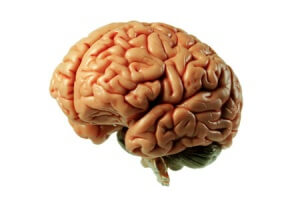Mental Effects of Alcohol: Effects of Alcohol on the Brain
Alcohol and the Brain
Though alcohol is considered socially acceptable to consume in most parts of the world, heavy alcohol use can prove detrimental to a person’s physical and mental wellbeing and the overall physiological health of their brain. Heavy or long-term alcohol use can result in learning and memory issues and can also eventually lead to the development or exacerbation of mental health conditions.3
The brain is a delicate and intricate organ that must maintain a careful balance of chemicals, called neurotransmitters, for a person to function properly. Alcohol intoxication can disrupt this fine balance, disturbing the brain’s natural equilibrium, and long-term, chronic use forces a person’s brain to adapt in an effort to compensate for the effects of alcohol.
Perhaps one of the most alarming long-term effects of alcohol use on the brain is the potential development of physiological dependence, a state and condition in which a person experiences physical and psychological withdrawal symptoms and cravings if they cease drinking or significantly lower the amount of alcohol in their body.

A person who is dependent on alcohol is at risk of developing an AUD, a brain disease characterized by a struggle to limit drinking, despite significant negative influences on someone’s personal health, relationships, and overall social functioning.6
While some of alcohol’s physical and mental effects fade once someone stops drinking, others may persist for longer periods of time and have long-term health consequences.2
Get in contact with us by filling in our online insurance verification form below. Let us remove the confusion and difficulty of verifying your insurance coverage for treatment. We have years of experience in the addiction space and contracts with many of the big name insurance providers. By providing your name, contact information, and insurance provider, we can communicate directly with your insurance provider to find out if you are in-network with our facilities, the length of stay covered, and more without the hassle of having you contact the company directly. All information is confidential, and there is no obligation to enter treatment.
Short-Term Effects of Alcohol on the Brain
Alcohol intoxication is a result of short-term effects on the central nervous system with symptoms that can vary drastically depending on how often someone drinks, the amount of alcohol they consume, their unique bodily makeup, and their weight. Symptoms of alcohol intoxication, such as mild cognitive and physical impairment, may become evident after just 1 or 2 drinks, but heavier use can result in alcohol overdose if someone ingests too much alcohol during one sitting.7
The immediate effects of alcohol on the brain are due to its influence on the organ’s communication and information-processing pathways. Unfortunately, drinking too heavily or too rapidly can result in several adverse mental effects, such as confusion, impaired motor coordination, and declined decision-making ability. Continuing drinking despite recognizing signs of this can lead to alcohol overdose, sometimes referred to as “alcohol poisoning.”8
Alcohol poisoning is a dangerous and potentially deadly consequence of drinking large amounts of alcohol in a short amount of time. Alcohol poisoning symptoms may include:8
- Confusion.
- Seizure.
- Problems with remaining conscious.
- Respiratory suppression.
- Heart rate slowing.
- Vomiting.
- Permanent cognitive disruption or impairment.
- In the worst cases, death.
Long-Term Effects of Alcohol on the Brain
Those who drink more heavily are at increased risk for adverse alcohol-related complications, especially if they drink excessively over long periods of time.3 Long-term health risks of chronic alcohol use include heart, liver, and digestion problems, cancer, and immune system weakenin as well as mood and sleep disturbances and the development of other mental health problems, including depression and anxiety.3
Alcohol can inflict lasting harm on your brain and result in shrinkage of the organ’s region known as the hippocampus. In one study by the University of Oxford, researchers followed participants for 30 years, tracking their drinking patterns and brain health. Participants in the study who drank 4 or more drinks a day had almost 6 times the risk of hippocampus shrinkage compared to nondrinkers.9 In other words, brain shrinkage was proportional to the amount of alcohol the participants consumed, and even mild and moderate drinkers showed more shrinkage of the hippocampus than those who abstained from alcohol completely.9
Wernicke-Korsakoff Syndrome (aka Wet Brain)
Those who use alcohol excessively and for long periods of time also risk thiamine deficiency as a result of poor nutrition, which may result in the development of Wernicke-Korsakoff Syndrome (WKS), sometimes referred to as “wet brain.” This condition can cause persisting mental confusion, eye movement disturbances, difficulty with coordination, and persistent learning and memory problems.7
Development of an Alcohol Use Disorder (AUD)
Long-term alcohol misuse can also lead to the development of an alcohol use disorder (AUD), which may sometimes be referred to as an “alcohol addiction” or “alcoholism.”An AUD is a compulsive, problematic pattern of alcohol use that persists despite negative consequences to a person’s health, job, and personal relationships. For a mental health professional to diagnose someone with an AUD, a person must meet at least two of the following criteria within a 12-month span:10
- Spending a significant amount of time trying to obtain alcohol.
- Experiencing cravings for alcohol.
- Drinking while in situations where it’s dangerous to do so, such as while driving or operating machinery.
- Continuing to drink despite familial and relationship issues caused by alcohol use.
- Being unable to fulfill obligations at work, home, or school because of alcohol use.
- Using higher or more frequent amounts of alcohol than originally intended.
- Tolerance, or needing higher amounts of alcohol to achieve previous effects.
- Being unable to cut down on drinking.
- Continuing to drink despite negative physical or mental health consequences.
- Avoiding activities that you once enjoyed so you can drink.
- Experiencing alcohol withdrawal symptoms if you try to stop drinking.
Alcohol Consumption in the U.S.
Alcohol is considered socially acceptable in the United States, and many Americans consume alcohol on a regular basis. Drinking too much, however, can be harmful to your health. Between 2011 and 2015, alcohol abuse was responsible for roughly 95,000 deaths, and excessive alcohol use caused the death of 1 in 10 adults between the ages of 20 and 64.3
The 2018 National Survey on Drug Use and Health reports that 139.8 million Americans aged 12 or older currently drink alcohol, 67.1 million were considered binge drinkers in the past month, and 16.6 million were classified as heavy drinkers.11
The NIAAA defines binge drinking as consuming enough alcohol to raise your BAC to 0.08 g/dl in a single occasion. This generally translates to 4 drinks for women and 5 for men within a period of about 2 hours. 2 Binge drinking can lead to the development of an AUD, and in 2018, 14.1 million adults ages 18 and older were reported to have an AUD.11
What Effects can Alcohol Have on My Mental Health?
People may experience improved social interaction or general feelings of well-being with moderate alcohol consumption. But it’s important to understand that alcohol use can pose a risk to someone’s mental health, overall mood, and daily cognitive functioning due to its impact on brain chemicals. Alcohol use–especially excessive alcohol use–can exacerbate pre-existing comorbid psychiatric disorders, such as depression and anxiety. In others, alcohol may induce depression and anxiety.13

Cognitive effects of alcohol use may include memory loss, problems with learning, dementia, and severely hindered mental functioning in most severe cases.10 Seeking alcohol addiction treatment is the first step in preventing or reducing the negative effects of alcohol on the brain.
It’s never too late to turn your life around, no matter how dire your situation may feel in the moment. Reach out for help today and get the care you need. By seeking addiction treatment, you can take back your life and prevent or reduce many of the risks associated with alcohol abuse.
